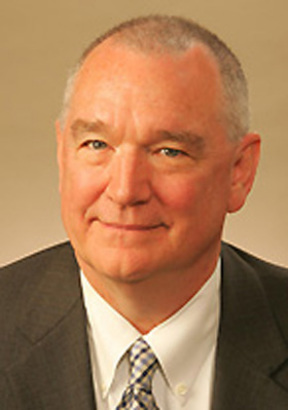More than 100 people filled the council chambers at City Hall yesterday as newly-hired City Manager Eric Anderson unveiled to councilmembers, Mayor Bill Baarsma, and city staff a plan designed to balance the citys budget through 2008, eliminate property and business and occupation (B&O) taxes, reduce the utility tax, introduce user fees for emergency and library services, and avoid a cumulative deficit forecasted to reach $40 million by 2016.
I know of no other community that has attempted to do this, said Anderson, who presented the plan during the councils weekly noon study session. It would be truly groundbreaking.
Anderson told the mayor and city council that the city could reach bankruptcy as early as 2010, when the deficit grows to $24 million. Whether its a public entity or private business, Anderson added, thats a bankruptcy scenario that needs to be dealt with rapidly.
Andersons plan comes less than one year after the city discovered a $29.6 million deficit while balancing its biennium budget last fall. The council approved a two-year, $356 million general fund budget on Dec. 14, but with provisions that provided funding for one year toward services such as the Proctor District fire station and community liaison police officers. In addition, the citys expenses have climbed over the past several years, the result of higher costs for wages and benefits, and a law limiting property taxes citywide.
During Tuesdays study session, Anderson described a twofold plan that addressed budget concerns from short- and long-term perspectives.
In the short-term, he recommended permanent adjustments of $10 million to balance the budget through 2006, and the elimination of a $14.5 million projected deficit for the 2007/2008 biennium. Those adjustments would be made through the Breakthrough Change Initiative introduced by former city manager Jim Walton, who retired June 30. That plan is designed to reduce expenses by making structural changes in the way the city is organized and operated, in areas that include employee compensation and benefits, organizational restructuring, risk management, and vehicles and equipment.
Anderson also said the short-term goal would be met without a reduction of service or the use of undesignated and unreserved funds. The biggest challenge in meeting that goal is employee compensation. To that end, he recommended the council establish a formal policy for total compensation, and to manage human resources — including labor negotiations — consistent with that policy.
Anderson said that fiscal discipline and inter-departmental teamwork would be necessary in order to present a balanced budget to the council in November.
The long-term plan, however, received the most attention — largely because it calls for elimination of property and B&O taxes, reduction of the utility tax, and introduction of monthly user fees for police, fire, and library services. Its a plan that would also require state legislative approval and public support.
Fees would be based upon either building occupancy or property value, applicable to all property owners — including hospitals, non-profit organizations, schools, ports, and governments (but not houses of worship), and charged monthly in an itemized invoice.
There would be a very clear relationship between what is being paid and what its for, said Anderson, who compared the invoice to a monthly cable bill. He also estimated that the fees would be less than current property taxes because 20 percent of the assessed value of property in Tacoma is currently tax-exempt. People will pay less for the very reason that everyone pays the fee, he added. Its more equitable. He also said that few people know exactly how their property taxes are used. Theres a fairly high level of confusion, he said. Thats one of the reasons its an easy target for people.
Anderson was referring to the voter-approved cap on raising property taxes in the city.
Similarly, eliminating B&O taxes would give Tacoma a competitive advantage in luring news businesses, and help grow start-up and neighborhood businesses.
Still, user fees for police, fire, and library services would have to meet or exceed $150 million — the revenue currently generated from the citys B&O and property taxes — to pencil out, and exceed that amount in order to gain ground on the projected deficit.
Indeed, the plan lacked specific financial details — a fact that Anderson readily admitted. It kept many councilmembers from completely endorsing the concept.
Councilmember Tom Stenger was concerned about the impact user fees would have on low-income residents, renters, schools, and hospitals. He asked if renters would pay for the fees through increased rents, and if patients would pay for the fees through increased hospital rates. We can move around the mechanisms, but somebody ultimately ends up paying the bill somewhere, said Stenger. They have to balance their budgets, too.
Fiscal discipline will be the challenge, said Deputy Mayor Connie Ladenburg, who added that councilmembers like to provide a hand-out when the community comes forward with requests for assistance. Fiscal responsibility not only has to come from us, but we also have to ask the community to understand what we are doing, and try not to come to us, she said.
Most recently, the Tacoma Events Commission received a $450,000 bill for city services provided during the Tall Ships Festival last month. The city waived some of the costs, and provided the commission 16 months to raise $100,000 to pay off the bill.
Deputy Mayor Ladenburg also said she would like to convene focus groups and public meetings to gauge support for the plan. She also made it clear to Tacoma residents that work still needed to be done on the plan. Dont imply or assume this is a done deal, she said. This is a concept. Please be patient and let us study this.
Councilmember Mike Lonergan focused on the short-term goal of making permanent adjustments of $10 million to balance the budget through 2006. Priority number one for me is getting clearer answers in how we are moving into 2006, he said. The clock is ticking. Were in August. Tell me how were going to save $10 million without service adjustments.
Anderson said he was currently working with staff to answer that question.
The sense of urgency grabs my attention, said Councilmember Bill Evans, referring to the forecasted deficit and bankruptcy. Its just good fiscal advice.
This is not a done deal by a long-shot, said Anderson. My only recommendation is that we should look at this. Its that early and tentative.
For a copy of City Manager Eric Andersons State of the Budget presentation, visit http://www.ci.tacoma.wa.us/cronews/BudgetPresentation_Aug92005.pdf.








